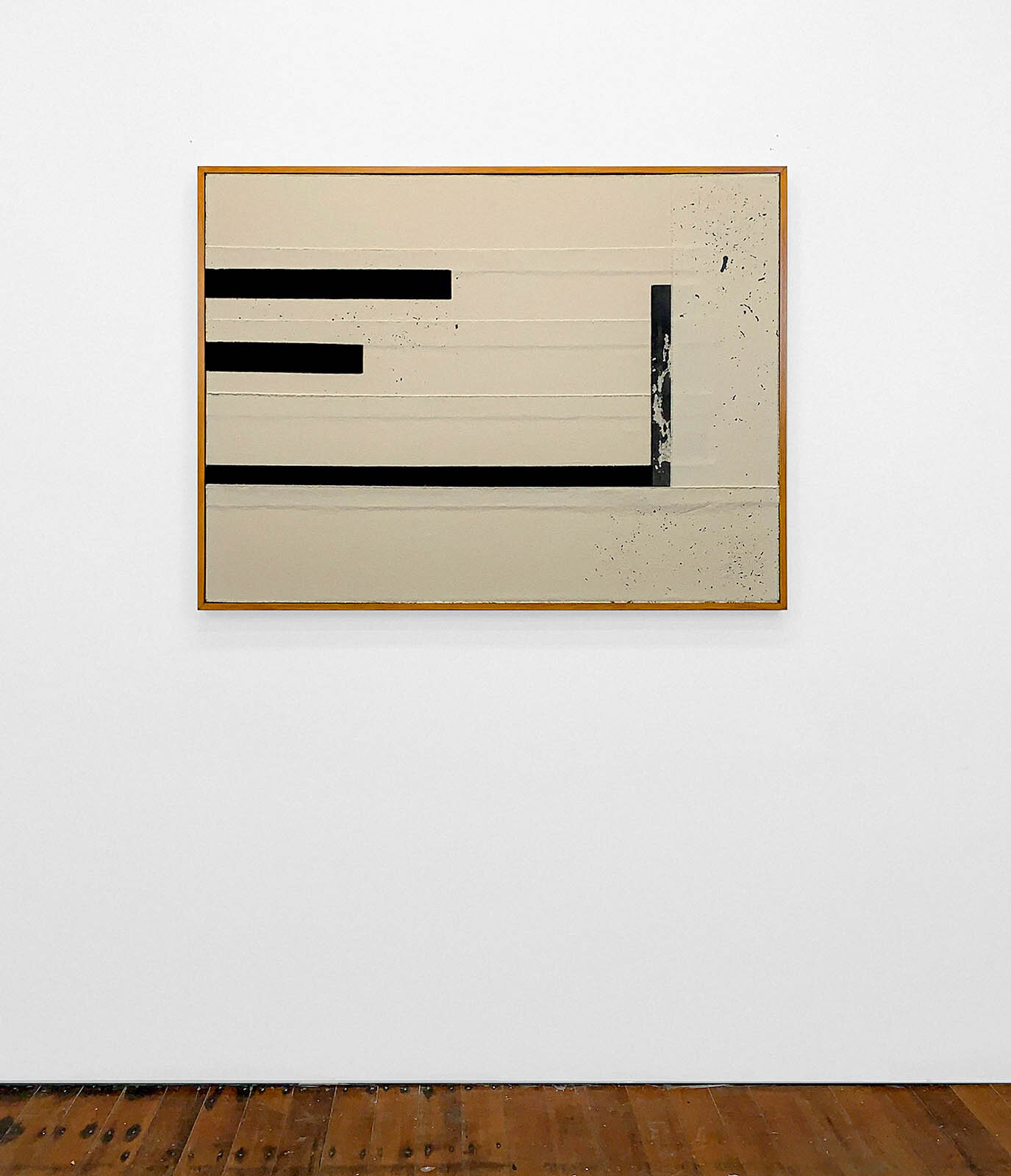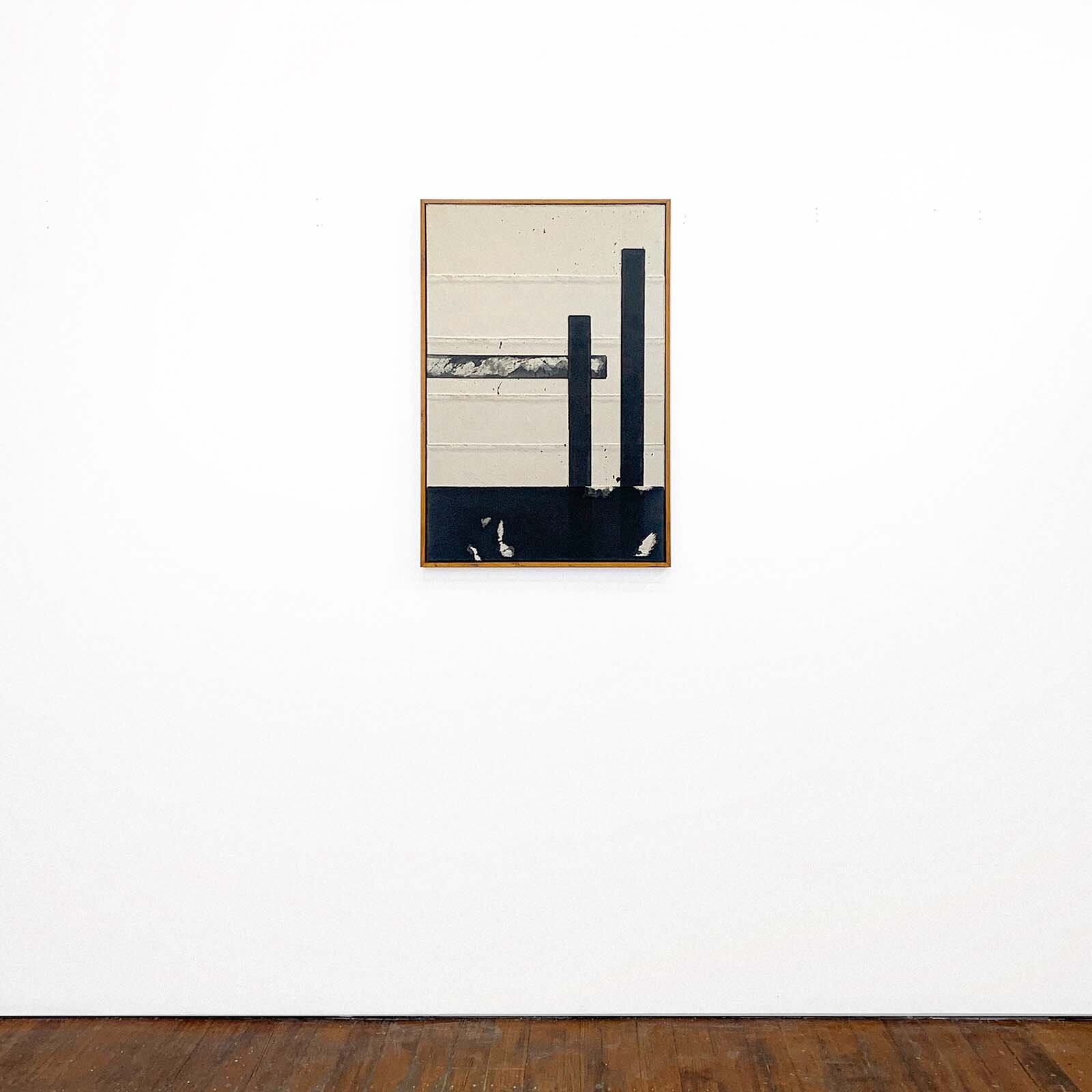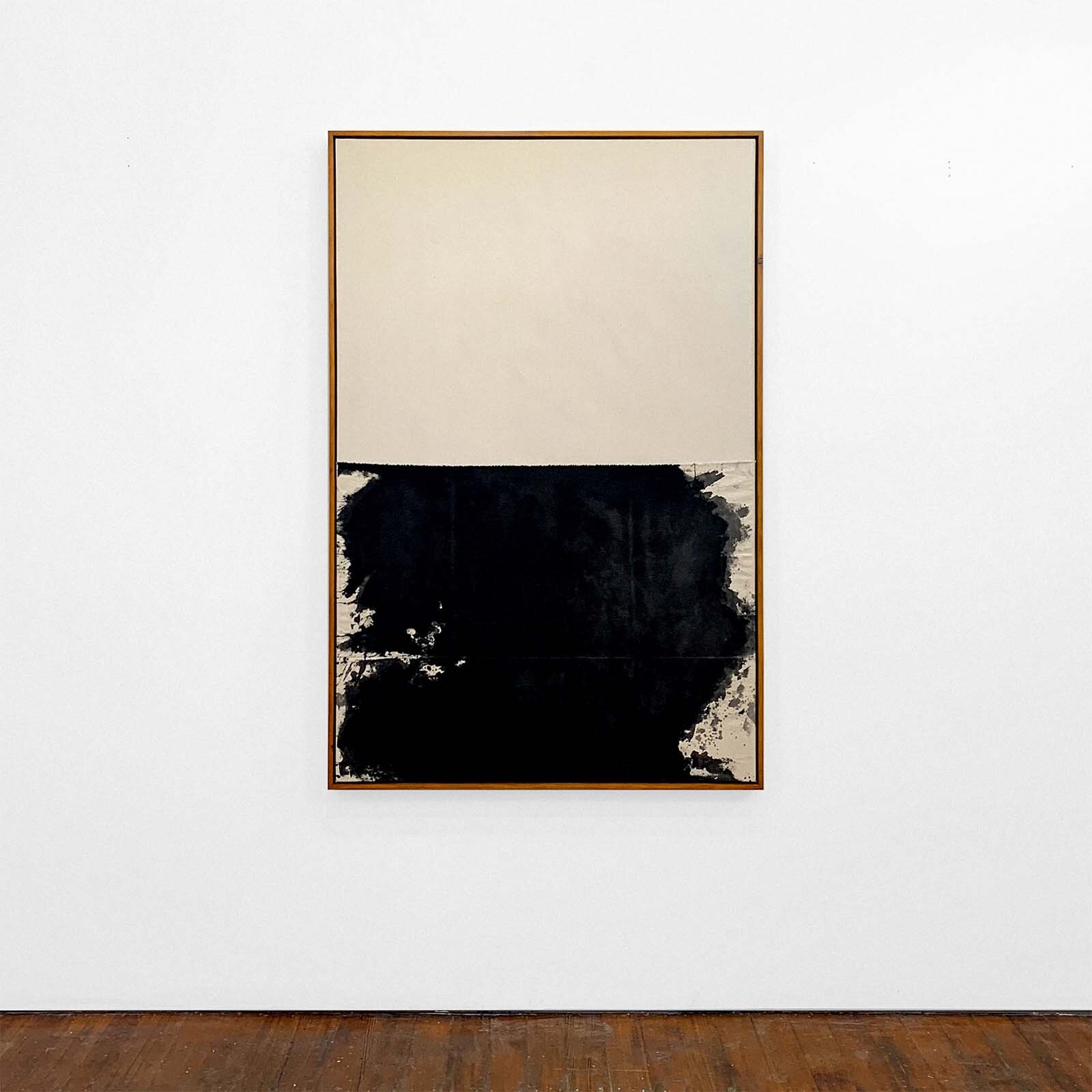.artist talk
* HENRY WOOLWAY
with Abigail Hart
Henry Woolway has claim to one of the very few Cinderella stories of this pandemic. With tragedy and uncertainty swirling around, it is difficult to find the good in the world to be excited about. Even more so, it is difficult to let ourselves see the good because it feels like we are ignoring the bad. Woolway took a tiny glimmer of an opportunity in the vast dark that the pandemic brought when it set in and leaned in to that glimmer wholeheartedly.
Woolway decided to take his art full time mere months before lockdown hit the UK and much of the rest of the world. With it came a small silver lining, the opportunity to spend time at home with his painting. The outcome turned into something Woolway never could have guessed—double digit sales and even an art show snuck in under the wire—thanks to a hashtag and an online community.
So many suffered from the loss of community during lockdowns, and certainly social media does not completely fill that void. Many people, however, also discovered the solace that lies in the smallest amount of connection. Henry Woolway found enough community on Instagram to start making sales and, more importantly, to start giving back to other artists.
TELL ME ABOUT YOUR BACKGROUND AND BEING SELF-TAUGHT. WHAT INSPIRED YOU TO MOVE TO VISUAL ART FROM FILM? HOW DO YOU THINK BEING SELF-TAUGHT HAS SET YOU APART FROM OTHER ARTISTS?
I’ve always been very hands on and loved making, building and designing. My favorite subject at school was always woodworking. At university I took TV and Film Set Design in Cardiff, Wales as it combined two of interests, the building side and my love of film. Before I’d applied for the course I didn’t even know you could design for film. After university I moved to London and worked on Tv shows like ‘TOP BOY’ series 1, ‘The Tunnel’, ‘The Royals’ and films including ‘How I Live now’, ‘Survivor’ with Pierce Brosnan and ‘The Look Of Love’. The work was interesting and creative to a point but I was always creating something for someone else, I spent so much time being creative but I never felt I was completely in control of the outcome. In film everything is done by committee and that’s why I feel it isn’t the most creative field to work in. I wanted to make time for myself and my creativeness. In 2016 I took on a studio in Peckham, South East London. On evenings, weekends and between freelance Tv and Film work I would go there to create. In those days I was making art out of Perspex, metal and plaster. It was more like 2D sculpture and was all about shape and form. These pieces didn’t have any narrative. Whilst doing this I consciously stayed away from painting on canvas, it wasn’t until I moved to Liverpool in 2019, due to leaving the studio, I decided to start painting. Being Self taught I feel has allowed me to mature as an artist much slower and less defined. I look back at my days in Peckham as my early years at college, being told by the teacher to experiment and find my niche. I think if I’d had to present a final year project of that work I would have walked away from the course as it took me 4 years to truly find my style. I also feel as though I’m still working things out at such a fast pace I have such a desire to keep making and trying new ideas, its all such a playground and one of the few things in my life I haven’t been held back on, by colleagues or teachers or bosses. My style is a slow steady build, which I am still refining and playing with.
YOU SAY YOUR WORK IS A “CANDID LOOK AT YOUR RELATIONSHIP WITH YOUR LIFE EXPERIENCES.” HOW HAS THAT RELATIONSHIP EVOLVED SINCE BEGINNING YOUR JOURNEY AS AN ARTIST?
My art and the journey I’ve been on doing it have completely changed me. I started making art that was trying to be something. Now my pieces teach me something about myself. I tried to force narrative onto my early paintings. It wasn’t until I did the write up for my first show did I realize this. My paintings now are not at all figurative but to me have such strong sentiments more than feelings attached to them. It odd to say but I now look back at my up bringing in Cornwall very differently than I did 18 months ago as my art has helped me focus on things that effected me then that still effect me now.
AS SOMEONE WHO HAS MOVED THROUGH MANY CREATIVE JOBS AND ART FORMS, WHAT DOES AUTONOMY MEAN TO YOU?
Autonomy means absolutely everything to me. It’s the reason I felt un-nourished by the Film And TV work. I think I take complete control in my art for this very reason. When I started painting I would sell my paintings unframed unless the client requested one. Now I only sell my paintings framed and in the frame I have chosen and hand made. The frame is as much part of the painting as the canvas on the stretcher.
I like knowing that I have complete control over the final look of the works. I am a person who also believes other opinions are probably better or preferable to mine. With my art if I can close off all other avenues and voices my work comes out much stronger and confident for it.
YOU HAVE BEEN REALLY ACTIVE DURING THE LOCKDOWNS. WHAT HAS IT BEEN LIKE TO BE AN ARTIST AS GALLERIES HAVE BEEN SHUT DOWN OFF AND ON?
For me lockdown was when I really got started. My last job in Tv and film finished in November 2019 so it wasn’t long after that once I’d started giving my art more time had the lockdown come into force. I think like everyone I got down and thought there was no way to keep going and get ahead with my art career. I did a series of 4 paintings which I put out on Instagram. One of these paintings which was my OG ‘Changing Perspectives’ got picked up by House And Garden magazine in the UK, those 4 sold in the first few days. Due to the magazine I was swamped a little with messages requesting paintings. I sold 40 paintings in the first lock down through Instagram alone. Also, as I was only showing my work on Instagram I think I was really careful with the look of all my works and made sure that they all worked well together on my feed. I really think that if I hadn’t been collating them on there my style would have wavered a bit. It kept me so focused. Just after the first lockdown I did manage to sneak in a show in Liverpool which was so great to do, it was so nice to have people looking at my paintings in real life as my paintings are all about the texture, the overlapping of the canvas and the markings which don’t come across in photos as well. I know there is a lot of cynicism through the art world about instagram and how it can make art throw away but for 2020 I couldn’t think of a better platform to show off my work.
HOW HAVE YOU BEEN BALANCING THE STRESS OF UNCERTAINTY AND GLOBAL TRAGEDY WITH COMMITMENT TO WORK AND ART?
At the start of the first lockdown In the Uk in March (?) it did get to me and the sense of helplessness overcame me. It wasn’t until a few weeks in I decided to make the most of the situation. At the time I wasn’t allowed into the studio so had to do all my work from the house. I set up my frame work shop in my kitchen and turned my living room into a paint studio which amazingly my girlfriend allowed. I realised that I was lucky. I could still paint and send out works to people. I wanted to make the most of this. I used the time also to connect with galleries and other artists. I used the #artistsupportpledge to sell smaller artworks and give a little bit back to other artists.
SO MUCH OF YOUR WORK HAS BEEN MOVING TOWARDS SIMPLICITY. WHERE DO YOU SEE YOURSELF GOING FROM HERE? WHAT IS INSPIRING YOU MOVING FORWARD?
I am still working on refining my style, because I only use black and white washed canvas I feel the attention to detail needs to be greater than paintings with 1000’s of brush strokes on. Every little mark or dot or overlapped section of canvas needs to feel perfect for the paintings to work. I really like Rothko and Twombly who have this undeniable style that looks so effortless but is so confident. I think as you move towards minimilsm or simplicity your work has to hold its own more and more through confidence and strong and single minded decision making. I want to make simple pieces of art that still show process.
.artist talk
Henry Woolway
speaks with
Abigail Hart
first published in:
issue 30, 01/2021
Woolway’s beginnings as an artist are completely relatable. Everyone can remember getting a job, whether a first job or something even further along into a career, that from the beginning seemed like it would be perfect. What makes Woolway’s story special is the strength he found to not compromise or back down, or even quit all at once out of disappointment. Woolway simply continued to work, slowly, towards his own creative vision, towards his own autonomy.
Hearing Woolway’s story, I find myself missing the little studio in Peckham. I’ve never seen it, nor even been to Peckham, but it is so obvious that he learned and grew so much there. As his strong, minimalist art shows, Woolway embraced that challenge as he did every other, with slow, purposeful motion towards the better.
credit header imageHenry Woolway
Changing Perspectives
Acrylic on canvas collage, 95cm x 65cm





